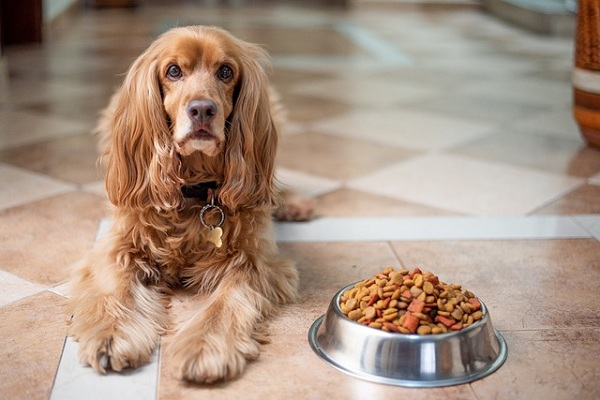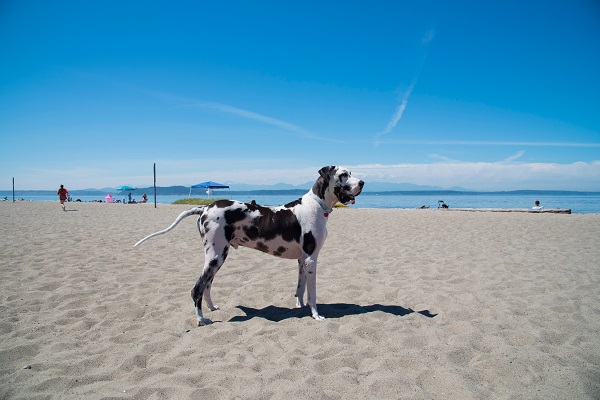Nutrition does play a significant role in how healthy a dog is or not. Hence, a fresh food diet can be of much help. That way, it is unlikely that your dogs would experience health issues such as allergies, obesity, diabetes, and skin conditions. The thing with dogs is that Mother Nature has designed them to be carnivores.
As such, they should eat a diet based on raw meat. It is their ancestral diet, and they must consume the same. Our pet dogs share 90% of the DNA (deoxyribonucleic acid) found among coyotes and wolves.
However, these days, you have a lot of dog owners who are vegans or vegetarians themselves. They want their dogs to follow the same lifestyle as well. They want them to avoid any food that may be of animal origin. There are various reasons for the same.
However, the most prominent ones among them are animal welfare, the impact of farming, and climate change, to name a few.
The thing is that the vegan and vegetarian dog food commercially available are of poor ingredients that are bad for your dog’s health in the long term. Therefore, you must steer clear of them.
These are highly processed products with synthetic additives galore that have little or no nutritional value.
Is it safe for your dog to eat a vegan diet?
All around the world, veterinary doctors say that plant-based foods are dangerous for dogs, and in the long term, they cause them more harm.
There are several reasons for that as well. Dogs do not have the enzyme named amylase in their saliva. This enzyme helps them break down carbs.
They have shorter digestive tracts. It means there is less time for food to be digested and then processed. They do not require carbs in their diet to sustain their life.
Analysis of vegan diet for dogs
Several scientists conducted tests on different plant-based ingredients to find how good they are for dogs. The test results have shown that such food contains sufficient nutrients for your dog to be healthy and fit. The amino acid content is sufficient as well.
So, there is a good chance they can survive on a vegan or a vegetarian diet. Experts usually recommend that you create a balanced diet for your dog. However, eating plant-based foods would not harm or alter them in any way as such.
When is vegan or vegetarian the right option?
It is important to remember that the best option for dogs is still a meat-based diet. No expert would recommend that you feed your dog anything else. However, there are always exceptions to this norm.
Especially so when your dog is suffering from a medical condition whereby having a vegan or vegetarian diet would be the best option for them.
However, if determined that a vegan or vegetarian diet would be for your dog, you should be extremely careful, as otherwise, the results could be bad for your dog.
How to transition their diet?
The change must happen gradually. It would let the stomach enzymes and acids adjust to the change. Following are the ingredients that you should try to aid the transition of your dog’s diet to a vegan or a vegetarian one:
- plant-based enzymes such as bromelain and papain
- flax seed water
- herbs that support digestion such as slippery elm, mint leaves, and marshmallow roots
- psyllium husk
- probiotics that contain gut-friendly bacteria
What should a vegan diet for dogs include?
Following is the breakup that should be there in your dog’s food if you are trying to make it a vegan one:
- 50% cooked legumes such as split peas and lentils
- 12% gently steamed or raw green vegetables such as asparagus and broccoli
- 25% cooked whole grains such as quinoa and barley
- 1% ground seeds, nut butter, or oils such as flax and sunflower
- 12% gently steamed or raw red, white, or white vegetables such as carrots and sweet potatoes
It is significant to make sure that there is no mistake. Always feed organic non-GMO (genetically modified organism) food.
How much should you feed?
There is no universal rule in this regard. However, if your dog is an adult and remains active for at least a couple of hours a day, this is what you can try:
- between 2 and 4 pounds – 10% of their body weight
- between 6 and 8 pounds – 7% of their body weight
- between 10 and 16 pounds – 5% of their body weight
- between 18 and 20 pounds – 3% of their body weight
- more than 20 pounds – 2% of their body weight
How do make sure that they would digest the food easily?
There are some steps that you can take in this regard. For starters, cook all the grains and legumes thoroughly until they turn tender or soft. You can pre-soak them if you want to as well.
Rather than feeding them steamed or raw vegetables, you can feed them fermented vegetables as they would help in the growth of gut-friendly bacteria that occurs naturally. You can also try to get them on sprouted grains and legumes.
Conclusion
So, as you may have seen above, the work of transitioning your dog’s meat-based diet to a plant-based one would be beneficial for their health. There is no issue in that regard. However, you have to be careful. Make a lot of effort so that there is no nutritional deficiency in the dog’s diet.
Otherwise, the entire exercise would be a futile one. It is essential to ensure that the transition is not a sudden one. You have to get them used gradually to a vegan diet. There is a correct way of doing it, and you would have to follow it.

 DogExpress
DogExpress


















 in Chandigarh, India.
in Chandigarh, India. 
